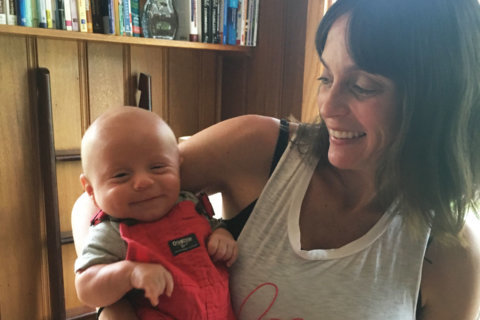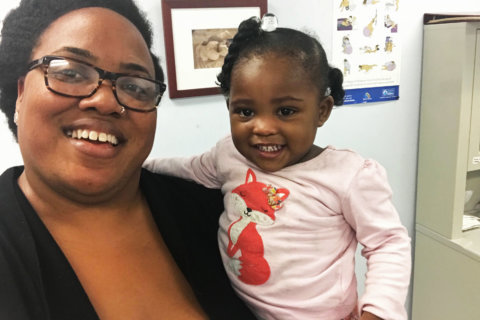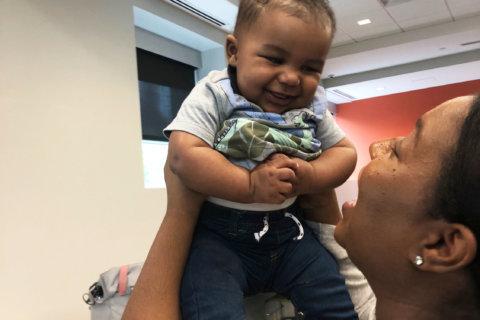WASHINGTON — On Sept. 12, the third floor of D.C.’s Washington Convention Center was packed with policy leaders, health care experts … and quite a few babies — all for Mayor Muriel Bowser’s first Maternal and Infant Health Summit.
The open-to-the-public event convened mayors, physicians and nonprofit executives to examine trends in pregnancy-related health outcomes, both locally and nationally, and to discuss best practices for improving them.
“About 700 women in this country die as a result of childbirth and 60,000 women are what we call near misses — women that are almost dying as a result of childbirth — and that’s just simply unacceptable,” said March of Dimes President Stacey Davis Stewart, a panelist at the summit.
“We have to prioritize women’s health.”
Despite an overall global decline, maternal mortality is on the rise in the U.S. The number of women who died from childbirth more than doubled between 1993 and 2013, from 12 maternal deaths per 100,000 live births to 28, according to the World Health Organization.
And in D.C., one of the wealthiest and most educated cities in the country, the maternal mortality ratio was nearly double the national average between 2005 and 2014.
Southeast D.C. resident Maxine Robinson was among the nearly 1,500 people who registered for the summit, and she brought her 9-month-old baby along. Robinson, a lactation consultant, said complications during her most recent pregnancy left her feeling anxious about the delivery.
“I have four children, four sons, and this one is my last one, and this was the only pregnancy I was deathly afraid of,” Robinson said.
“Women are scared to give birth, and I don’t know if it’s because of the statistics or because we’re not able to speak up and say what’s really going on, but we’re dying while we’re having babies, and that’s not OK.”
Throughout the day, experts reviewed everything from access to care, to patient education, to establishing healthy habits in the years leading up to pregnancy, and health disparities.
“There are a lot of things that are contributing to our less-than-optimal outcomes, and we have to try some different things. We can’t continue to only do the things that we’ve done in the past to look for improvement,” Mayor Muriel Bowser said.
Dr. LaQuandra Nesbitt, director of D.C.’s Department of Health, touched on the importance of reaching out to women as soon as they realize they’re pregnant as a way to improve results — “in a way that’s not overly intrusive, but letting them know that there is access to care here in the District of Columbia.”
Experts say early and consistent prenatal care is key when it comes to mom’s (and baby’s) health, but in D.C., data show many women access care late in the pregnancy, or not at all.
D.C. resident Robinson agrees that conversations around pregnancy and women’s health should start early — even decades before babies are on the brain.
“I think women and girls, we’re not talking about reproductive health. We’re educating girls when they get their period, and I really think that’s too late,” Robinson said.
“Those should be discussions that happen earlier. That, I think, would help the village then start advocating for each other.”
Some experts at the summit discussed the need for bigger policy changes, including legislation on the national level. However Robinson said she’s looking to her neighbors before she looks to Capitol Hill for change.
“What I’d like to see from here is empowerment of the community. I’m hoping that the community is here, and women who are going to say to themselves, ‘You know what? I had a baby. I’m going to make sure I talk to this 25-year-old who’s having a baby and tell her what I went through.’”
Bowser said next steps following the summit are already in the works (the Health Department’s Nesbitt will has some follow-up efforts already scheduled, which will be announced in October). In the meantime, Bowser plans to present information learned from the summit to the U.S. Conference of Mayors this month, and potentially use the group’s lobbying power to advance specific actions on a national level.
“If there are things that we learn that we can implement as part of a longer strategy, we will do that. So stay tuned,” Bowser said.







